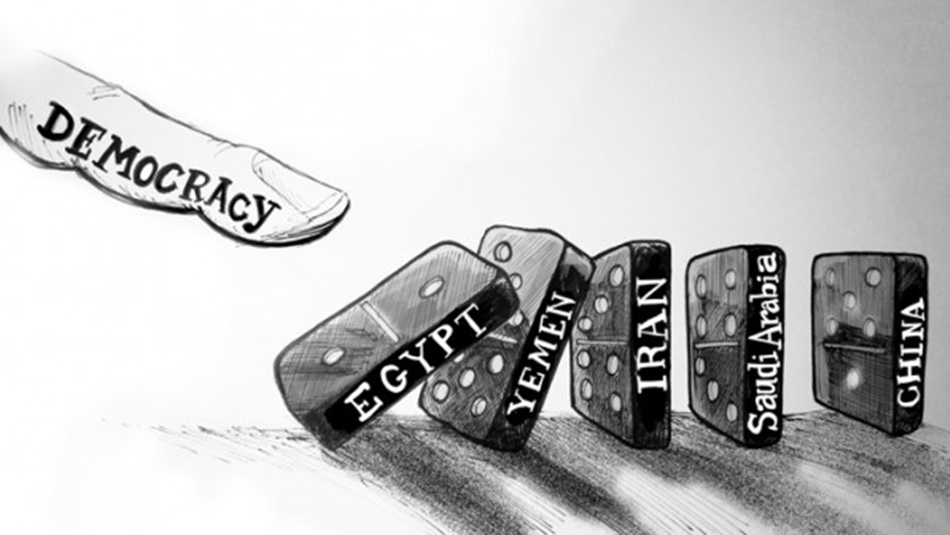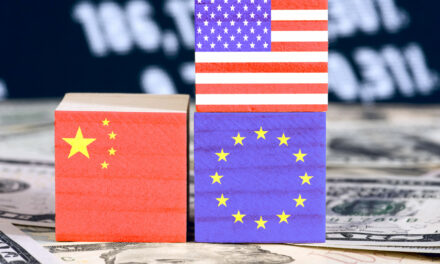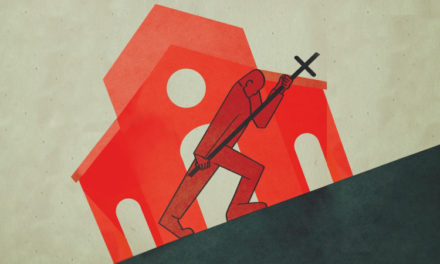Is Autocracy Really America's Enemy? Patrick J. Buchanan, editor of The American Conservative, writes in his article
After the Russian invasion of Ukraine, Joe Biden found himself saying in front of the country and the world that
"we are once again participating in the great battle for freedom. In the battle between democracy and autocracy”.
During her trip to Taiwan, Speaker of the House Nancy Pelosi said – aligning herself with Biden – as follows:
"Today the world faces a choice between democracy and autocracy. America's determination to preserve democracy in Taiwan and around the world remains unwavering."
But is this really the main battle for America today? Is this the biggest challenge and threat? Is it the ideological crusade of autocracy and democracy that will determine the fate of humanity? It may be the future, but it certainly wasn't America's past.
In fact, during the rise of the USA and its subsequent two centuries of world domination, autocrats proved to be invaluable allies.
When the fate of the Revolution was at stake in 1778, the autocratic French king's decision to enter the war on America's side delighted General George Washington. French intervention also proved decisive in the 1781 Battle of Yorktown, which secured the independence of the USA.
A decade later, the French Revolution overthrew the XVI. Louis' reign, and together with Marie Antoinette, he was executed under the guillotine.
At the end of the First World War, in 1918, the United States sent several million soldiers to France, and this step laid the foundation for the victory over Imperial Germany. And who were America's allies in the Great War? The British, the French, the Russians, the Italians and the Japanese, that is, the imperial and colonial powers.
In the war with Japan between 1941 and 1945, the most important Asian ally of the USA was the Chinese autocrat General Chiang Kai-shek. America's decisive ally in the war against Hitler's Germany, who fought more than anyone else for victory, was the first man of the Soviet Union, Joseph Stalin, the greatest tyrant of his time. During the Korean War between 1950 and 1953, the leader and dictator of the South Korean regime was Syngman Rhee.
During the four decades of the Cold War, before the collapse and disintegration of the Soviet empire, autocrats were allies of the United States:
the Shah of Iran; Chilean General Augusto Pinochet; Anastasio Somoza in Nicaragua; General Francisco Franco of Spain; Anwar Sadat in Egypt; Kings and Princes of Saudi Arabia.
During the Cold War, India was the world's largest democracy, yet it sided with communist Russia rather than the USA. In contrast, autocratic Pakistan was an ally of the United States. Gary Powers' U-2 flight that was shot down over the Soviet Union began in Pakistan, as did Henry Kissinger's secret mission to China in 1971, which set the stage for the historic Nixon-Mao meeting in 1972. During the Cold War, the most important friends and allies in the Arab and Muslim world came from kings, emirs, and sultans—all autocrats.
The seven-year war in Yemen, in which US air support was indispensable, was fought by the Saudi monarchy to prevent the Houthi rebels from remaining in power after the revolution.
And what was the American-Saudi goal? Restoring a overthrown autocracy.
This is not to prove that autocracy is better than democracy, but rather that the domestic politics of other countries, especially in times of war, has rarely been America's top priority.
The crucial question is usually – and rightly – this: does this autocrat have the same goals as us and is he fighting with us? Because if so, America has almost always welcomed any autocrat.
When the Arab Spring broke out and dictator Hosni Mubarak's 30-year rule came to an end, America rejoiced at the results of free elections that brought Mohamed Morsi, the leader of the Muslim Brotherhood, to power. A year later, Morsi was ousted in a military coup and General Abdel Fattah el-Sisi seized power, prompting Secretary of State John Kerry to boast that the Egyptian military was "restoring democracy." Kerry then explained that Morsi's removal was at the request of "millions of people". Since then, the number of political prisoners held by Szíszi has reached tens of thousands.
If Pelosi and Biden see the world as a battle between autocracy and democracy, then the question arises: why does the US not insist that its allies - such as Egypt, Jordan, Saudi Arabia, Qatar, Yemen, the United Arab Emirates and Oman - should regular elections be held so that legitimate, democratic rulers come to power and not the autocrats who currently rule?
And there is also a historical question regarding the Biden-Pelosi declaration, which is about the global struggle between autocracy and democracy:
when did the political arrangements of other nations—there are currently 194—become the primary interest of a country whose founding fathers wanted it to stay out of foreign strife and wars?
America “does not go abroad in search of monsters to destroy,” said Secretary of State John Quincy Adams. "He is a well-wisher of everyone's freedom and independence. He is only a champion and protector of his own.”
Yes. That's how it used to be.
Featured image: Twitter












